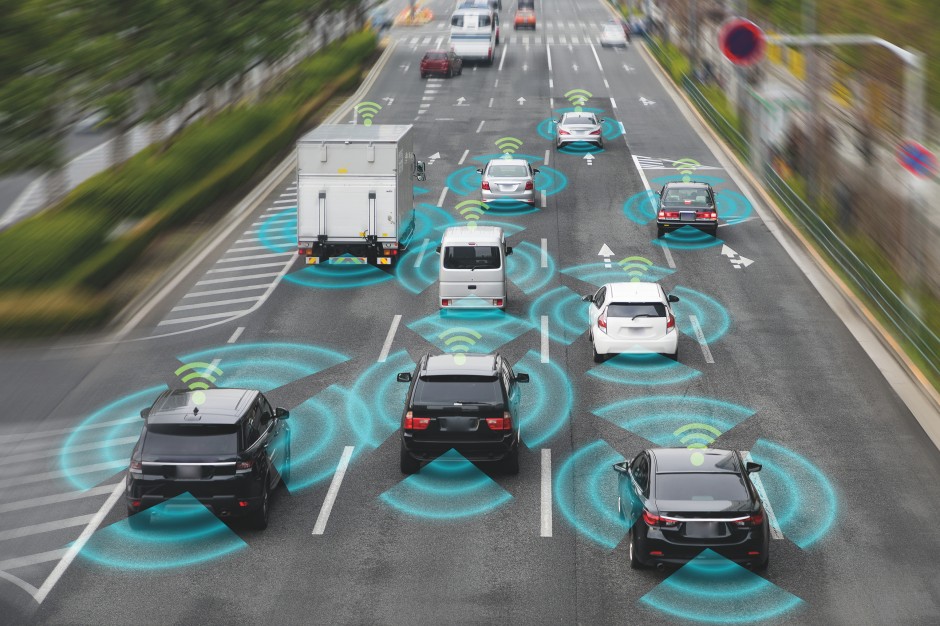Vehicle Testing 2.0
Vehicle tests help ensure vehicle quality under a wide range of external conditions. Formel D supports its customers in preparing, organizing, and carrying out test runs on public streets as well as private tracks and test sites. In an interview, Mario Knop (Director Competence Center at Formel D) and Wei Zhang (Director Sales at Formel D, China) discuss current challenges in the industry as well as the Formel D service portfolio.
- How do new mobility issues affect the area of vehicle testing?

Mario Knop: The classic areas of testing are now also complemented by alternative drives, connected/community services, as well as advanced driver assistance functions all the way to autonomous driving. The new technologies all have their own specific requirements. Besides testing and ensuring new functions or drive types, it is also about acquiring environment and infrastructure data in advance or in parallel.
When it comes to electromobility, for example, drive reliability under a wide range of environmental conditions and in combination with other vehicle components plays an important role, in addition to the range. On top of that, compatibility with the available charging infrastructure in the individual countries/regions also has to be ensured.
Today, driver assistance functions are more and more often subjected to virtual testing, applying a wide range of scenarios with growing complexity. Here, Formel D continually expands its catalog of scenarios with traffic situations from real-life vehicle operation. In addition, marketability and reliability of new functions are tested simultaneously or right after, under real and the most diverse conditions as possible.
The acceptance of connected services, such as streaming music or real-time information when looking for a parking space by users, hinges on end-to-end availability and function that meets expectations. Depending on the goal, first comprehensive data from public traffic has to be collected and analyzed – such as the position of charging stations or designated parking spots in downtown areas – and then be made available in the corresponding applications. Validation under real conditions is then often the recommended course of action.
- What measures will Formel D implement to face these new challenges? Has the Group expanded its range of services in this area?
Mario Knop: Formel D is active on all main markets in the areas described beforehand, covering around 21 million kilometers during testing in 2018 alone. Our greatest strength is that we are positioned globally and can control projects in Europe, the Americas, and Central Asia, which allows us to ensure consistency in quality. We qualify employees worldwide for newly emerging requirements – e.g., in the field of electromobility. This expertise is performed by the electrically instructed person (EIP) to the electrician – and, subject to the field of application; we also train them continuously in the areas of vehicle technology moreover, driving safety. Our mobile teams are responsible for vehicle and measurement technology, capture environmental data across national borders to develop driver assistance systems and connected services and test advanced functions in the vehicle. Customers are kept up-to-date, at least once weekly, so that optimization measures can be introduced early on as necessary.
Wei Zhang: Serving the most significant internal market for automotive manufacturing and sales, Formel D China is not only testing traditional vehicles but also new electric and autonomous vehicles. Primarily, the testing of autonomous vehicles no longer focuses on the car as the main subject, but also on completing the driving concept including perception system, decision system, and execution system.
- What vehicle types does Formel D offer testing services for?
Mario Knop: We offer services for all vehicle types – from motorcycles to passenger cars of all kinds, including super sports cars through to commercial vehicles, which can range all the way from vans to heavy-duty trucks and buses. We perform testing on both test sites and public streets – and internationally in a growing number of projects. Depending on the requirements, our services extend from vehicle construction, retrofitting, and camouflage to fleet management and testing support points down to testing operation, including technical vehicle management.
- What locations and countries are in focus?
Mario Knop: In addition to steadily growing testing and guarantee coverage in Europe, the Americas, Russia and India, China is also increasingly becoming an important market for us and our customers. Supported by innovation-friendly policies and a high willingness to invest, new technologies are being developed at rapid speeds in China and integrated into product landscapes. In the area of electromobility alone, there are currently around 200 start-ups already on the market or looking to tap into it with their products soon. Add to that Internet technology groups, such as those in the US, that establish platforms for autonomous driving while having to ensure functionality.
Wei Zhang: Over the past 1.5 years, Formel D China has developed the vehicle testing business rapidly. Today, we have more than 250 qualified drivers with the expertise to test vehicles with traditional combustion engines as well as electric vehicles and vehicles with autonomous technologies. We are providing services for numerous Western and Chinese OEMs as well as for new technology companies.
- Under what different conditions does Formel D carry out testing?

Mario Knop: Formel D not only carries out test runs on different terrains (offroad, poor road conditions, cross-country, city and highway testing), but also under a wide range of climate conditions. In this context, Russia deserves special attention, where virtually all climate zones are represented, from arctic to continental to subtropical climates, and vehicles can be tested at a temperature range from -50°C to 30°C. As a global company, this allows us to test vehicle functions on both test tracks and public streets under real conditions at a permanent -30 °C. One decisive criterion when selecting a track and location is of course the target and market group of the respective client for a specific vehicle.
- What role does software testing play at Formel D?
Mario Knop: For drivers, infotainment, telephone and navigation systems as well as vehicle connectivity with the outside world are gaining in importance. Here, we also run function tests under a wide range of real conditions. Furthermore, there are various Formel D projects in the area of aftersales where software testing helps ensure the function of vehicle programming and diagnostic systems.
- What challenges do you see in the years to come and how is Formel D preparing for them?
Mario Knop: Besides the technologies we already mentioned, Formel D also expects other types of drives to develop. Furthermore, expansions to global networking are another important subject for us. We will continue working in close collaboration with our customers to optimize the link between virtual and real testing. Concerning big data, we want to find out precisely at which locations, which conditions, and with what intensity we have to carry out tests to achieve the best possible results and thus safeguard vehicles within the entire range. We want to increase efficiency further for both our customers and us and are setting the course for all of these challenges today.